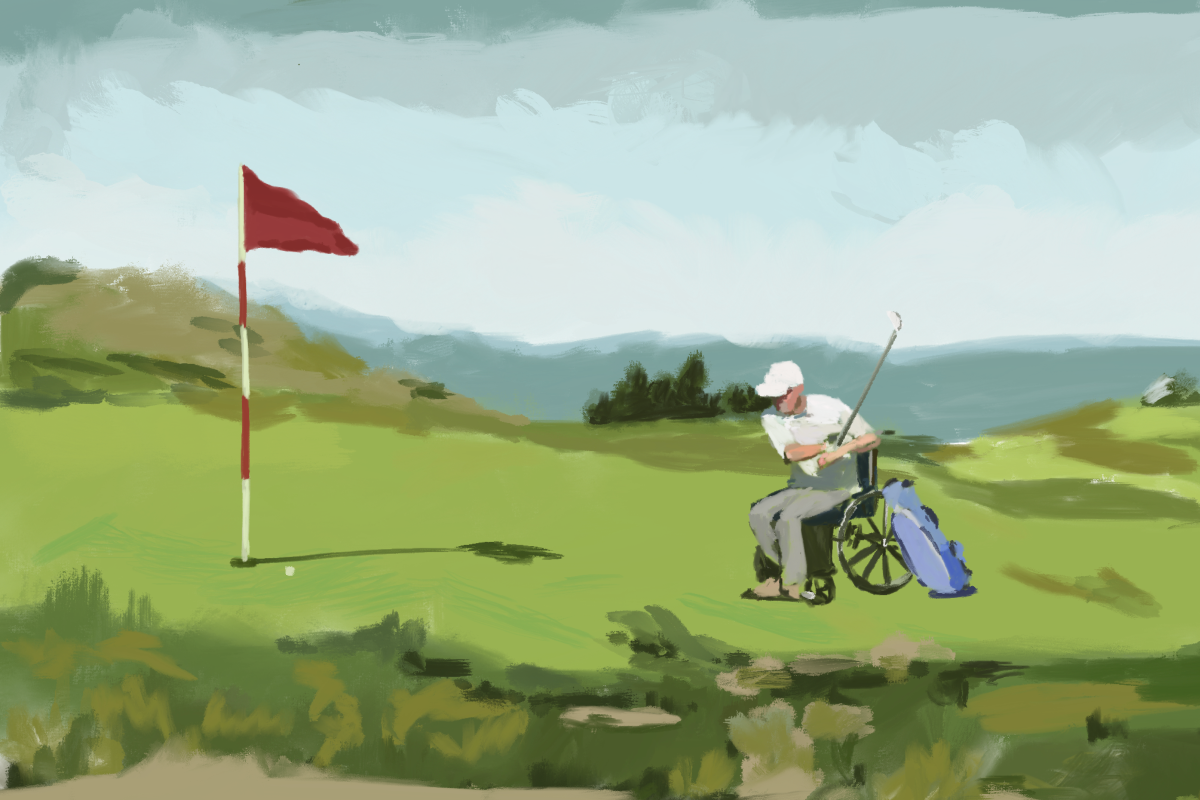From The Michigan Daily:
UMich study finds association between ALS and avocational activities
by Ava Chatlosh

The University of Michigan Pranger ALS Clinic published a study in January 2024 found that hobbies such as golfing, woodworking and recreational dancing are associated with a higher risk of developing amyotrophic lateral sclerosis.
ALS is characterized by the degeneration of motor neurons which leads to a loss of voluntary muscle control, an inability to breathe and, eventually, death. The disease affects more than 31,000 patients in the United States, according to the CDC. ALS is most common in white males and people aged 60 to 69 years old. It appears randomly in 90% of patients, and the cause is unknown.
The Pranger ALS Clinic has developed what Dr. Eva Feldman, co-author of the study and director of the U-M ALS Center of Excellence, calls a “gene time environment hypothesis.” It suggests that each person is born with a set of genetics and over time, as they are exposed to different environmental stressors, their susceptibility to ALS changes. In an interview with The Michigan Daily, Dr. Stephen Goutman, the first author of the study and the director of the Pranger ALS Clinic, explained their hypothesis.
“There are things we can’t control, like aging,” Goutman said. “Everybody ages over time, and then if you pile on a sufficient amount of exposures, we think that a combination of genetic susceptibility, aging and exposures leads one to develop ALS.”
The study determined that exposures associated with ALS can be found anywhere. Past studies have linked ALS to pesticides in the blood and may originate from local golf courses’ use of pesticides or the aerosol released when shooting a hunting rifle. More men often engage in golfing and hunting compared to women, possibly causing the correlation between ALS and increased diagnoses in men. The new study found statistically significant associations with activities like swimming, golf, personal woodworking, hunting and gun use, gardening or yard work and personal metal work with ALS in males.
In an interview with The Daily, Engineering sophomore Grady Corcoran, a board member of Active Against ALS, said he believes research like this helps people make informed decisions about the activities they choose to do.
“No matter what you’re doing, there are a lot of side effects,” Corcoran said. “I don’t think they should be stressed about that. … But I think just knowing, ‘Hey, whatever I do can have consequences, and if I’m at risk for ALS, maybe I should take that into consideration.’ ”
For women, the only activity associated with ALS risk in the study was recreational dancing, which Feldman said may give researchers a place to dig deeper.
“Recreational dancing surprised me, and I said we need to show our results but then we need to understand why,” Feldman said.
Daily News Contributor Ava Chatlosh can be reached at [email protected].
